Is Quora right for your next campaign?
At JUST, we challenge ourselves and our clients to think outside the box by testing new or different advertising channels. That’s where Quora comes in. Quora sits at the intersection of search and social, which means it’s uniquely positioned to reach your target audience in an organic, meaningful way.
Background
So what is Quora? Quora is a knowledge sharing platform where users can ask questions and receive answers from experts across practically every subject imaginable. Think if Reddit and Wikipedia had a baby.
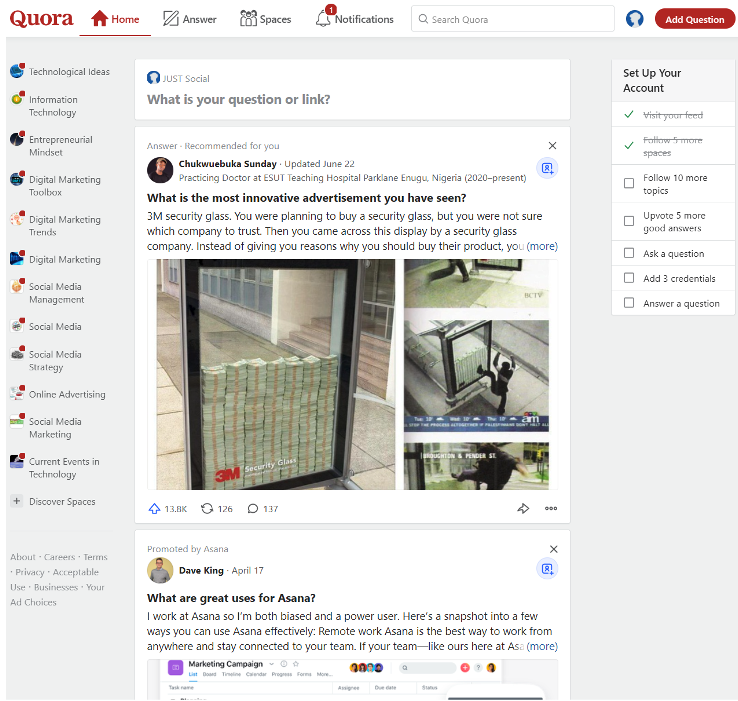
The platform has seen incredible growth with ballooning investment from marketers and over 300 million monthly active users. A simple Google Trends search shows the platform’s growing popularity over the past five years.
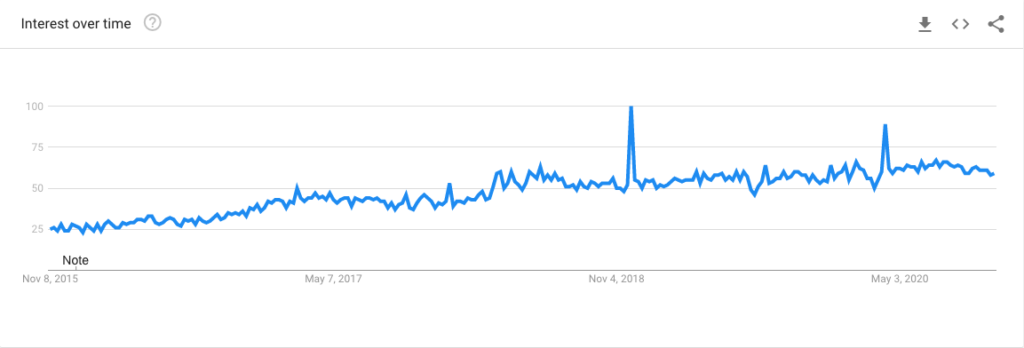
What’s more, these users are more likely to hold management positions and have a higher household income than the baseline for people over 18 years of age.
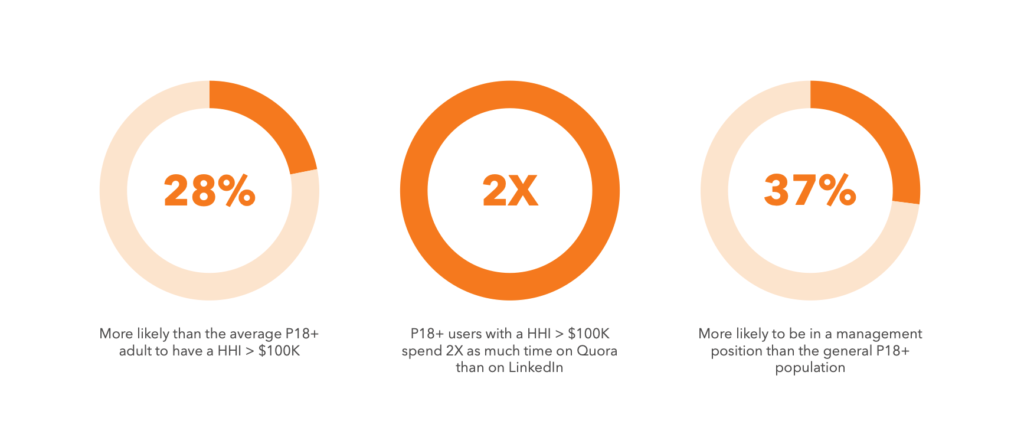
Putting it all together, Quora’s user base is made of professionals engaging in active research about a variety of topics, such as competitive comparisons between products, investigations into solutions to institutional challenges, or clarifications on product capabilities. This user behavior moves beyond the passive scrolling through feeds on most social platforms into something more-closely resembling the active intent that users exhibit when using a search engine. Brands can leverage this to their advantage by presenting themselves and their products as the answer to this research.
Targeting
Quora offers four ways for advertisers to reach their target audiences – contextual targeting, audience targeting, behavioral targeting, and broad targeting.
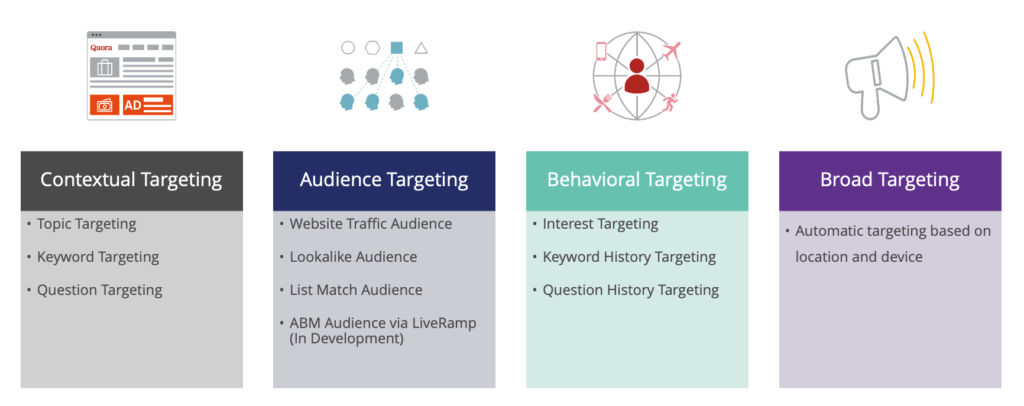
Contextual targeting allows advertisers to define specific topics and questions on which they would like their ads to show. Notably, it also includes keyword targeting which allows ads to show on questions containing the specified keywords, similar in some ways to search.
Audience targeting includes traditional retargeting audiences – via the Quora Pixel or an uploaded CRM list – as well as lookalike audiences to add additional scale to campaigns. Additionally, Quora now supports ABM audiences via its integration with LiveRamp.
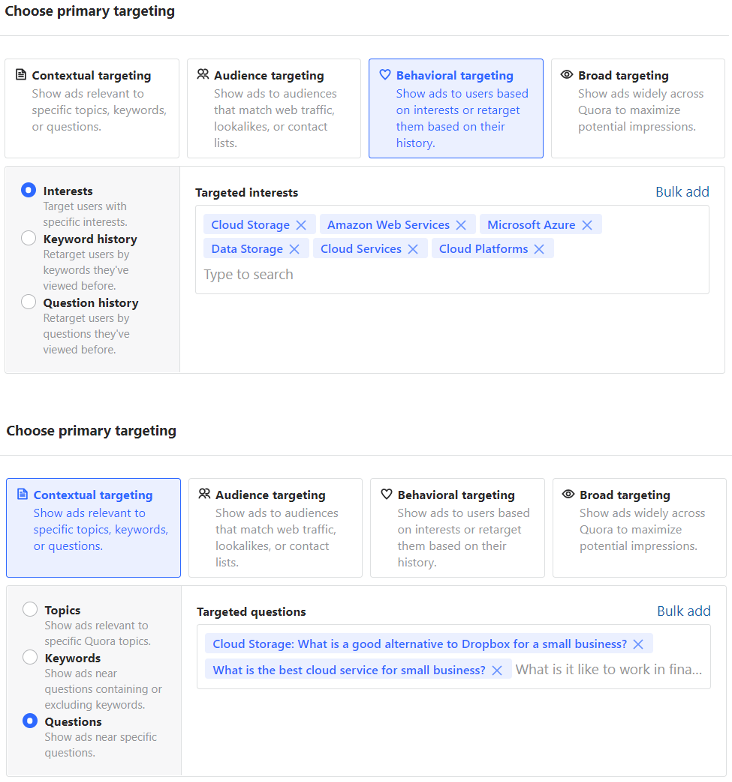
Behavioral targeting includes interest targeting as well as targeting the historical actions users have taken on Quora. For example, keyword history targeting allows advertisers to target users based on the keywords they’ve searched in the past. Advertisers can also target users who’ve visited specific questions in their history.
Broad targeting allows Quora to serve ads automatically based on location and device. While not as refined as the other targeting methods, broad targeting offers the greatest scale.
Ad Formats
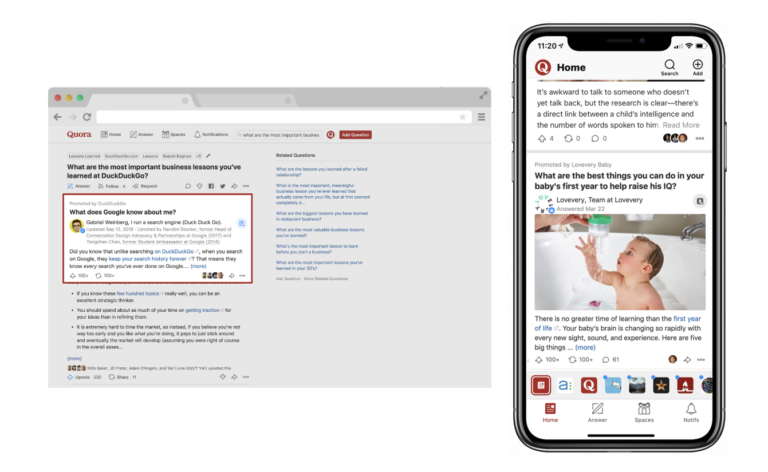
Quora supports traditional ad formats like Image Ads and Text Ads, comparable to other social platforms. It even introduced Lead Gen Forms to the mix in 2020, often a cornerstone of advertisers’ demand generation efforts. One of the more interesting ad formats is Promoted Answers.
With Promoted Answers, advertisers can increase the visibility of any answer – over 250 characters in length – to a question on Quora. This can be an effective way to demonstrate a brand’s thought leadership on the platform. For example, a key individual like a CEO or CTO can write an answer speaking to their company’s or product’s strengths, which can then be promoted in a campaign.
Quora IRL
Beyond paid advertising, Quora is also a great space for organic engagement. In this example, Asana strategically paired paid placements using topic targeting, alongside organic answers from their Co-founder, Justin Rosenstien.
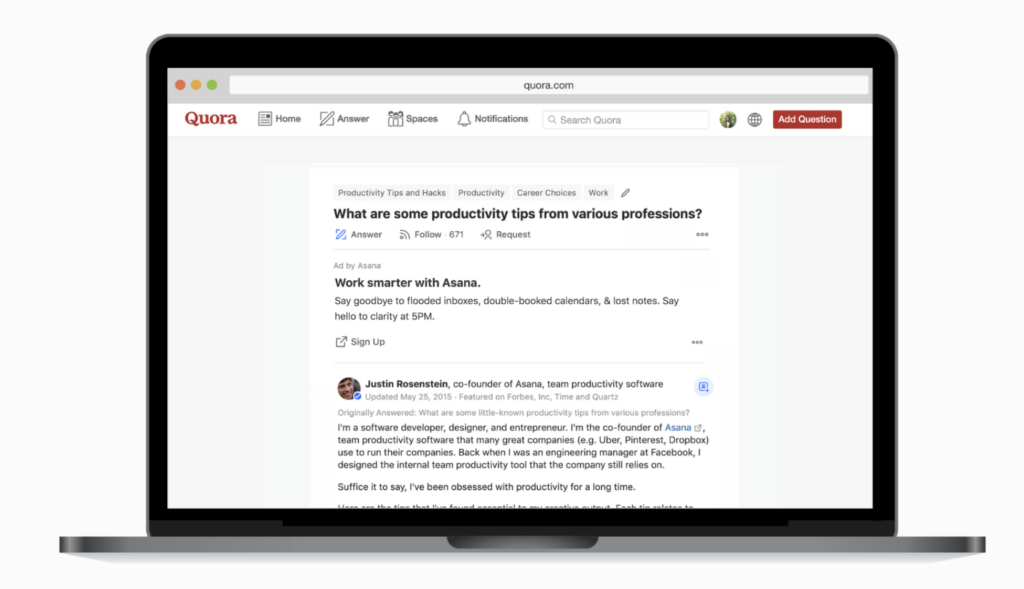
Pairing these two tactics, Asana was able to articulate their value more effectively than they could in a traditional display banner. In the end they saw 432k answer views and 7.7k upvotes on the platform. Asana’s head of User Acquisition, Shaman Kothari says it best:
“Quora is a high intent destination where people are looking for solutions to specific problems, that’s why advertising on Quora is a natural fit for us.”
Shaman Kothari, Head of User Aquisition, Asana
So, is Quora right for your marketing goals? There’s only one way to find out. Reach out and see how JUST can help grow your brand today.

